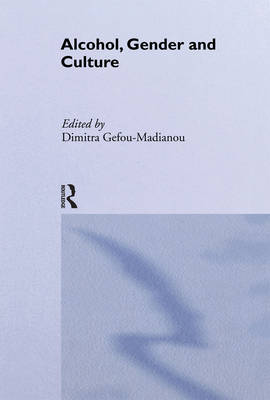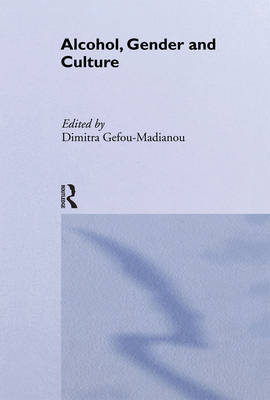
- Afhalen na 1 uur in een winkel met voorraad
- Gratis thuislevering in België vanaf € 30
- Ruim aanbod met 7 miljoen producten
- Afhalen na 1 uur in een winkel met voorraad
- Gratis thuislevering in België vanaf € 30
- Ruim aanbod met 7 miljoen producten
Alcohol, Gender and Culture
Omschrijving
Europeans consitiute 12 and a half per cent of the world's population but consume 50 per cent of the recorded world production alcohol, and this consumption plays a significant role in the cultural, religious, and social identites of these countrise. The contributors show how different groups define the proper use of alcohol, how State policies may effect drinking behaviour, and highlight how beverages and comestibles must be seen in relation to each other. From this is it shown how importamt socio-cultural distinctions are made between and within communities, gender relations, ethnic groups, and socio-economic groups, and within religious ideologies; what one drinks, how one drinks, with whom, and where, all influence not how alcoholic substances are regarded but how social relations are experienced.
Alcohol Gender and Culture clearly demonstrates how the social construction of drinking may provide an analytical tool with which to approach different socio-cultural groups and illustrates how any cultural group can be compared to another by its attutudes to alcohol. It will be invaluable reading for students and lecturers af anthropology, cultural history and gender studies.
Specificaties
Betrokkenen
- Uitgeverij:
Inhoud
- Aantal bladzijden:
- 204
- Taal:
- Engels
- Reeks:
Eigenschappen
- Productcode (EAN):
- 9780415086677
- Verschijningsdatum:
- 1/10/1992
- Uitvoering:
- Hardcover
- Formaat:
- Genaaid
- Afmetingen:
- 140 mm x 216 mm
- Gewicht:
- 408 g

Alleen bij Standaard Boekhandel
Beoordelingen
We publiceren alleen reviews die voldoen aan de voorwaarden voor reviews. Bekijk onze voorwaarden voor reviews.










